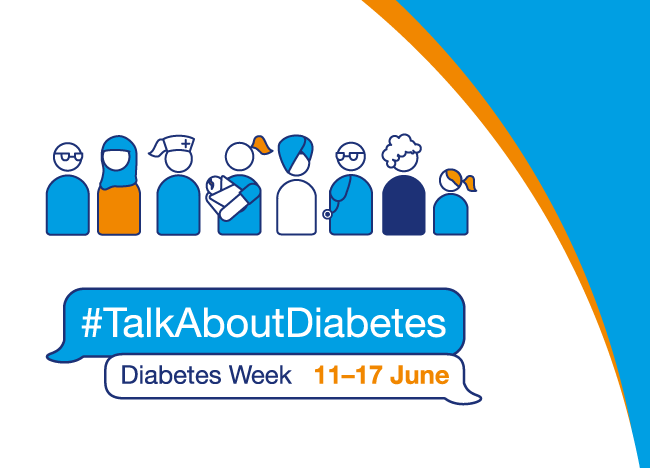According to lead charity for diabetes, Diabetes UK, around 3.7 million people are living with the condition – an increase of 1.9 million since 1998. But what are the clear facts around diabetes? Who is more likely to get it? And more importantly, how is it treated?
During Diabetes Week starting 11 June to 17 June, there are several events to raise awareness, including activity sessions where you can have a diabetes risk assessment.
Types of diabetes
What is Type 1 diabetes?
Type 1 diabetes is a serious, lifelong condition where your blood glucose level is too high because your body can’t make a hormone called insulin.
About 10 per cent of people with diabetes in the UK have Type 1 diabetes. It’s has nothing to do with diet or lifestyle, it just happens.
And we all need insulin to live. It does an essential job. It allows the glucose in our blood to enter our cells and fuel our bodies.
What is Type 2 diabetes?
Type 2 diabetes is a serious, lifelong condition where the insulin your pancreas makes can’t work properly, or your pancreas can’t make enough insulin.
About 90 per cent of people with diabetes have Type 2 diabetes. We all need insulin to live. It does an essential job. It allows the glucose in our blood to enter our cells and fuel our bodies. When you have Type 2 diabetes, your body still breaks down carbohydrate from your food and drink and turns it into glucose.
The pancreas responds to this by releasing insulin. But because this insulin can’t work properly, blood glucose levels keep rising. So more insulin is released. For some people with Type 2 diabetes this can eventually tire the pancreas out, meaning their body makes less and less insulin. This causes even higher blood glucose levels.
Who is at risk?
You can complete the NHS diabetes ‘quiz’ to assess whether you are at risk of diabetes here
- Your risk increases with age.
- You’re more at risk if you’re white and over 40 or over 25 if you’re African-Caribbean, Black African, or South Asian.
- You’re two to six times more likely to get Type 2 diabetes if you have a parent, brother, sister or child with diabetes.
- Type 2 diabetes is two to four times more likely in people of South Asian descent and African-Caribbean or Black African descent.
- You’re more at risk of Type 2 diabetes if you’re overweight, especially if you’re large around the middle.
- If you’ve ever had a heart attack or a stroke
- You have schizophrenia, bipolar illness or depression, or if you are receiving treatment with anti-psychotic medication
- You’re a woman who’s had polycystic ovaries, gestational diabetes, or a baby weighing over 10 pounds.
The good news is, is that while living with a diabetes condition is not easy – it is treatable.
Barnet Council’s website has a wealth of information on diabetes, including a diagnosis tool, local resources and support, click here.
You can even find out about real life stories from people living with diabetes – or even share your own experience by joining in on social media. @diabetesuk #DiabetesWeek

